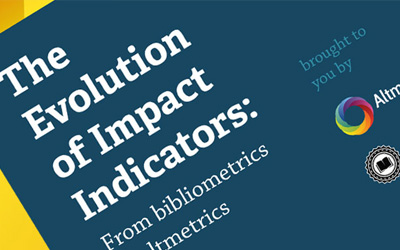
When the next outbreak disease is detected, will we be ready to fight it? From Ebola to Zika, epidemics of outbreak diseases have been on the rise making it paramount to have research institutions at the ready to develop life-saving drugs and vaccines to combat them. While finding ways to fight outbreak diseases is primarily a scientific endeavor, there is a largely legal component to it as well - intellectual property (IP) rights. According to Ana Santos Rutschman, Jaharis Faculty Fellow in Health Law and Intellectual Property at DePaul University College of Law, IP has a big role to play in the future of outbreak disease management.
In her recent paper, “IP Preparedness for Outbreak Diseases,” Rutschman overviews the role of IP law in the time leading up to and after the surfacing of a new outbreak disease. She argues that there are inefficiencies in the current approach to IP that hinder adequate research and development (R&D) for outbreak diseases. In the below interview Rutschman discusses the paper and her recommendations for improving IP preparedness for outbreak diseases.
Q&A with Ana Santos Rutschman
In what ways does IP help shape the response to infectious disease outbreaks? What are examples from recent outbreaks?
AR: IP is often viewed as a system of incentives to R&D in areas where outcomes are uncertain and the costs are high. This is the case of pharmaceutical R&D. In the case of outbreak diseases, because markets to recoup R&D costs are so fleeting, if there were no IP rights there would be little incentive for companies to invest in R&D in this area.
How are current IP regimes ineffective in supporting the development of drugs to minimize future outbreaks?
AR: IP can delay the development of vaccines during the early stages of an outbreak. In the recent case of Ebola, a small biotech company that had licensed vaccine technology from the Canadian government took too long to develop it after the outbreak began, and not much happened until a large pharmaceutical company got the rights over that technology. In this sense, the existence of IP rights can delay R&D during an outbreak, when funding for a particular disease is at its peak.
Can you briefly explain the IP stages in the development of vaccines targeting outbreak pathogens?
AR: If there is any existing technology that researchers can repurpose to create a new vaccine, they might have to license it from the initial innovator. This happened with Zika, in which case researchers used vaccine technology developed for a different virus (that belonged Zika’s viral family). And later on, once a new vaccine is developed, public-sector institutions often need to partner with pharmaceutical companies to test and manufacture the vaccine; at this point the vaccine has to be licensed as well.
What challenges tend to arise during the IP stages of vaccine development?
AR: IP negotiations tend to be lengthy. On top of that, when there are transfers of rights from the public sector into the private sector, the transfer is not always done in a way that maximizes the public interest. In the case of the US Army’s Zika vaccine, for example, the proposed license contained no pricing provisions. There were not even negotiations between the Army and the would-be licensee (a French pharmaceutical company) about fair pricing for the vaccine.
Why do you think research on the role of IP law in preventing the spread of outbreak diseases is lacking? What research is needed?
AR: I think there is a lot of valuable research on how IP operates as a set of incentives for biomedical research, and there are very good diagnostics of the problem in scholarly and non-scholarly literature. What I think is missing is more research on transfers of IP rights during outbreaks. This is important because once an outbreak begins we have an extraordinary amount of funding going into R&D on an otherwise neglected disease, and it is important to get licensing regimes right during that crucial period of time.
What do you think are the key initial steps that need to be taken to improve IP preparedness for outbreak diseases?
AR: I think the first step would be to amend the Patent Act to better regulate transfers of federally funded vaccine technology. Criteria for granting exclusive licenses to private-sector companies should be much more stringent, and pricing provisions should be included in every licensing agreement.







